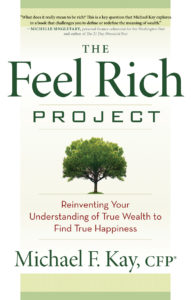 Today’s top story: NerdWallet’s 2016 American Household Credit Card Debt Study. Also in the news: The best places in American for first-time homebuyers, why Christmas loans are the coal in your financial stocking, and the best free online courses to help with your finances.
Today’s top story: NerdWallet’s 2016 American Household Credit Card Debt Study. Also in the news: The best places in American for first-time homebuyers, why Christmas loans are the coal in your financial stocking, and the best free online courses to help with your finances.
2016 American Household Credit Card Debt Study
Creeping back up.
Best Places in America for First-Time Homebuyers
Where you should be looking.
Christmas Loans: The Coal in Your Financial Stocking
Bah humbug.
The Best Free Online Courses to Help With Your Finances
It doesn’t get better than free!
 Today’s top story: Tips to save more for retirement in 2017. Also in the news: Why the key to saving may be in your head, why skipping a payment at the holidays is a bad idea, and a guide to holiday tipping.
Today’s top story: Tips to save more for retirement in 2017. Also in the news: Why the key to saving may be in your head, why skipping a payment at the holidays is a bad idea, and a guide to holiday tipping.  I’m giving away a copy of Michael F. Kay’s
I’m giving away a copy of Michael F. Kay’s  Today’s top story: How to find and finance bank-owned properties. Also in the news: Tips for handling holiday financial stress, how to have the money talk with your parents, and what to do when financial aid and scholarships don’t fully cover course fees.
Today’s top story: How to find and finance bank-owned properties. Also in the news: Tips for handling holiday financial stress, how to have the money talk with your parents, and what to do when financial aid and scholarships don’t fully cover course fees. Today’s top story: A good retirement savings option for the self-employed. Also in the news: Jobs that could mark you as a risk for late payments, what to ask before giving a cell phone as a gift, and the financial perks of not celebrating Christmas.
Today’s top story: A good retirement savings option for the self-employed. Also in the news: Jobs that could mark you as a risk for late payments, what to ask before giving a cell phone as a gift, and the financial perks of not celebrating Christmas. Today’s top story: Manage your debt for a smoother divorce. Also in the news: Giving your child the gift of stocks, how to donate credit card points and miles to charity, and six ways to make the most of your holiday bonus.
Today’s top story: Manage your debt for a smoother divorce. Also in the news: Giving your child the gift of stocks, how to donate credit card points and miles to charity, and six ways to make the most of your holiday bonus.